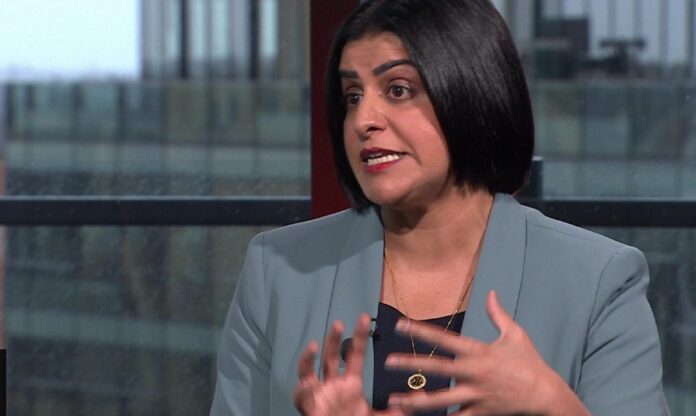The UK government has announced sweeping new powers for police to impose restrictions on repeat protests, a move critics fear could signal a chilling escalation in the criminalisation of dissent. Just a day after nearly 500 demonstrators were arrested at pro-Palestinian rallies, Home Secretary Shabana Mahmood unveiled the controversial measures—framed as a response to rising antisemitism and public disorder, yet widely seen as an attempt to silence political opposition.
Under the new rules, police forces will be able to impose conditions on demonstrations not based solely on immediate threats, but on the “cumulative impact” of previous protests. This shift—from managing incidents to policing ideologies—has already drawn comparisons to authoritarian strategies used in illiberal regimes. While Mahmood insists this isn’t a ban on protest, the optics of mass arrests, tightened legislation, and political framing tell another story.
The protests in question were held in support of the now-banned activist group Palestine Action, known for its civil disobedience against UK arms firms tied to Israel. Organisers, under the banner “Defend Our Juries,” have called the arrests an “unprecedented assault on free speech,” accusing the government of silencing opposition with “reheated laws” previously deemed unlawful.
What makes the timing of these new restrictions even more concerning is the broader socio-political context. Tensions are already high following a terrorist attack outside a Manchester synagogue on Yom Kippur that left two dead. While community protection is paramount, civil rights advocates warn against conflating legitimate protest with terrorism—a distinction that must not be blurred by political opportunism.
As climate justice movements such as Extinction Rebellion and Just Stop Oil have shown in recent years, peaceful civil disobedience is often the last resort in the face of systemic inaction. Today’s legal mechanisms used to suppress pro-Palestinian protests could just as easily be repurposed to clamp down on climate protests tomorrow.
The intersection of civil liberty and climate activism is critical. If the state sets a precedent for restricting protests based on repetition or political discomfort, it opens a pathway for marginalising environmental campaigns that are by nature persistent and symbolic. The climate emergency—unfolding in slow motion—requires disruptive and repeated action to force change. Criminalising that pattern undermines not just democratic rights but climate accountability.
The irony is stark: while the government calls for unity and integration, it risks deepening divisions through overreach. Kemi Badenoch’s rhetoric—describing UK streets as “theatres of intimidation”—only reinforces a narrative of fear that justifies expanded state powers. Meanwhile, dissent is equated with extremism, and human rights groups like Amnesty International are branded as out-of-touch for defending peaceful assembly.
In this climate—not just political, but environmental—silencing protest is not a solution. It’s a symptom of a democracy struggling to reconcile dissent with its self-image. The path forward must involve genuine dialogue, legal reform that upholds liberty, and state recognition that protest, even when uncomfortable, is not chaos—it is a call for justice.




